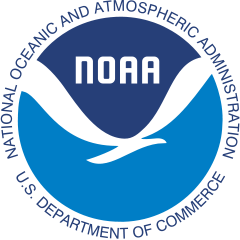GFDL News & Events
Visitors without GFDL affiliation attending seminars or other organized events must present government or university issued photo ID or two other forms of identification to gain access to the facility. If an acceptable ID cannot be provided, the Visitor will not be allowed access. If access is granted, the Visitor must sign in and be given a Visitor Badge. The Visitor Badge expires immediately after the seminar.
June 18th, 2024 - GFDL’s Ocean Model set to Enhance NOAA’s Hurricane Forecasting
June marks Ocean Month, so it is fitting to acknowledge the significant impact that oceans have on climate and everyday life, and to highlight the importance of continued research and innovation in ocean modeling. At GFDL, the latest version of the lab’s Modular Ocean Model, MOM6, represents a major advancement in modeling oceanic and climatic […]
April 25th, 2024 - Understanding Earth through GFDL’s Advanced Global Models
In celebration of Earth Month, GFDL shares how the lab is investing to meet weather and climate goals through some of its advanced global models: CM4, SPEAR, ESM4, and SHiELD. These realistic models play an important role in enhancing our comprehension of the Earth system, each providing unique insights into the science underpinning our understanding […]
Liping Zhang and Hiroyuki Murakami, scientists at GFDL, have been awarded funding for a new climate projections project that will spotlight the critical issue of extreme sea level events along the U.S. East Coast, emphasizing their societal impact. These events, often fueled by storm surges during extreme weather occurrences, substantially threaten lives and infrastructure in […]
If you live along a U.S. coast, you’re likely familiar with NOAA’s seasonal hurricane forecasts. Released each year in May (and updated in August for the Atlantic region), these forecasts provide an important preview of what each year’s Atlantic and Pacific hurricane seasons will bring. “Seasonal predictions provide valuable lead time for communities to prepare […]
November 7th, 2023 - From NOAA to USPTO for Climate Innovative Solutions
Kristen Schepel, Science Policy and Project Manager at GFDL, is advancing cross-agency collaboration through an assignment at the United States Patent and Trademark Office (USPTO). As part of an employee exchange program, she has taken on the role of Climate Innovation Advisor at the USPTO, to connect the agency with the dynamic field of climate […]


